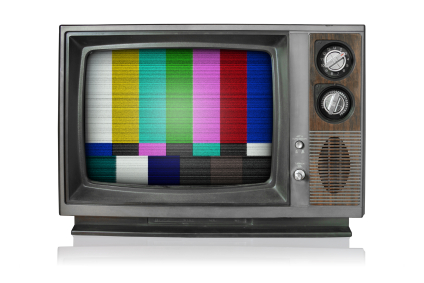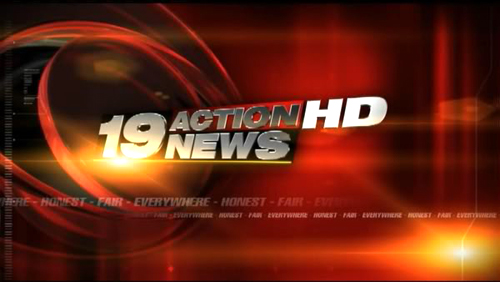With many ways to sell a story, marketing outrage is a viable option. People seem to like getting emotionally engaged, charged up, fired up, even outraged. We can’t resist.
Here’s an example.
Marketing | Environment | Culture
With many ways to sell a story, marketing outrage is a viable option. People seem to like getting emotionally engaged, charged up, fired up, even outraged. We can’t resist.
Here’s an example.
Two weeks ago today (or two weeks ago last night – still not clear), the Waldo Canyon Fire started. It’s now more than 95% contained and has been 100% contained on all Colorado Springs boundaries for several days now. It feels like a good time to organize some ideas about the local television coverage of the most destructive fire in Colorado’s history.
Nothing here is offered as definitive. Instead, it’s a handful of my personal thoughts, ideas, observations, and opinions.
The 9 thoughts below Continue reading
I just ended a 14 year run in local television marketing and promotion that took me from Grand Rapids to Chicago back to Grand Rapids to Colorado Springs. My short description of the work: running an in-house agency to build brands, drive viewership, and increase our overall standing with all stakeholders. So, my side was the business-to-consumer marketing that results in business-to-business selling of audiences (basic content around advertising model).
I’ve greatly enjoyed the first decade and a half of my career. I’ve worked for some great companies and done excellent work with wonderful people.
Here are some thoughts and observations from my experience in the local media industry. They’re focused primarily on traditional television broadcasting, rather than multi-platform content distribution and marketing.
These thoughts and observations are simplified and bullet-pointed. I’m happy to elaborate upon or talk through any of this in more detail. Use the Connect with Ethan page to find me – or just leave a comment on this post.

What a TV looked like when my career began. (Image from Photobucket user alex54j )
Working in Local TV Marketing and Promotion is Fun
The Work Itself is There, Then Gone
Marketing to Anonymous Masses Provides Limited Satisfaction
Local News is Very Static and Homogenous
Financially, Local TV Broadcasting is Challenged
Local Television Advertising’s Effective, But …
Local Television Stations Are Important
In Summary
I’m grateful for all the opportunities this industry has presented me and the dozens of excellent humans who helped me along the way. I hope for the best for the individuals who make the industry.
As you might expect, I’ve got many more thoughts, feelings, and ideas. I’m happy to have a threaded comment conversation, a real conversation, or an email exchange about any of this.
My Local Television Employers
Related Posts at ethanbeute.com
Upside Down: Traditional Advertising Relationships
Good News: You Get to Decide What’s News!
Broadcast Television: In Praise of a Relic
Our Nation’s Common Medium: Why Just One?
Bonus Videos
Both employ coarse language. The first is more slowly paced. The second is more direct and more coarse. Both employ the immediately recognizable patterns to which I referred earlier in this post.
A couple experiences demanded of me this post, though I fear I the question won’t be answered here due to complexity and variance.
First: lingering thoughts about my recent post about ForbesLife magazine, in which advertising functions as actual content. What is normally seen as interrupting noise seems to be a legitimate value add in that publication, which is why I identified it as kin to bridal and fashion mags. How far does that phenomenon extend?
Second: the first comment on a video I posted on the News First 5 (local NBC affiliate) Facebook page – “this is still news?” That, in response to a piece of video that was broadcast 36 hours earlier about a victim fighting off a pair of would-be home invaders about 48 hours earlier. If you follow the link, you’ll see my unnecessary, but polished defense.
So, what is news? In the first scenario, it’s advertising. In the second, it’s extremely perishable. There are nearly as many answers to the question as there are people to give it consideration.
Those answers, though, are decreasingly dependent upon or influenced by the one-time gatekeepers who produce and sell a traditional form of “news.”

Action News!
I’ll spare us all the rote litany of tired criticisms (think “if it bleeds it leads”) that have been lobbed at mainstream media for decades. I’ll take a short cut straight to: you get to decide what’s news.
House fire or traffic accident in a part of town I’ve never visited? Not news. Big sale at a retail shop or new location of a restaurant I occasionally patronize? Definitely news.
((Off-topic, but worth noting here: Action News is all over the former, but won’t touch the latter. The former’s a consequence of broadcasting to an anonymous mass of people whose only definite common trait is that they share a defined geographical territory. The latter’s a consequence of a “church and state” separation of advertising and content creation to erect and defend an idealized notion of objectivity.))
Want to follow attention-getting, dramatic story lines this election season? Want to understand more truly the issues and candidates instead? Totally your call either way.
See? You get to decide.
You get to choose from an increasing array of sources through an increasing number of channels. You get to pick what to read and what not to read. You get to determine what to see and what not to see. Viable information consumption options range from spoon-fed to ultimate control.
So why a common body of “news?” Agenda setting remains an influencing factor. Every other outlet chasing down whatever one of them shows interest in means many of us will read or see the same things. The dispersal of the one Associated Press story across several hundred news sites also assures a common base of news. The incessant retweets of the moment’s celebrity death spread insanely fast as they jump across different social channels, at least in part due to the self-important rush to “beat” the wire. If the use of all sources, channels and stories was charted by consumer or consumer groups, the boolean overlap is what’s generally regarded as “news.”
To the degree I control my consumption, I define news as information previously unknown or perceived differently that possesses one or more of three characteristics:
But that’s just me. Have you a definition for “news?”
© 2025 ethanbeute
Theme by Anders Noren — Up ↑